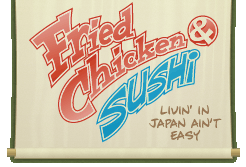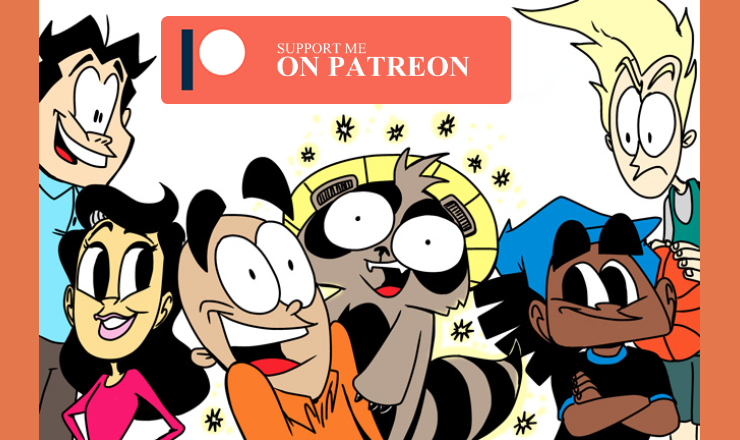This Japanese Phrase Explains the Power of Keeping Your Opinions to Yourself
/Sometimes it’s fine not to have an opinion
With everything going on globally, we often feel like it’s our responsibility to comment or be prepared to share our individual viewpoints at the drop of a hat.
I don’t see it this way.
Your opinion is important, but if you haven’t researched a topic or formulated a personal take on the subject, there’s no need to feel guilty. In America, all you have to do is tell people, “I have no opinion on that matter yet.” Or respond with, “No comment.”
When I was living in Japan, people there would always say the phrase, “Shoganai ne.” which means “It can’t be helped.” Almost like giving in and saying, “What can you do?”
I loved the fact that people could just let go of their stress or worry by using that phrase, and it still feels like it matters to them.
Not like when people in the states comment with a “Meh.” or an “Oh, well.” Like they’re writing it off or flushing the topic down the toilet.
Saying shoganai feels like you care, but there’s not much you can do to make a change right now. You have to accept things the way they are for the time being.
You don’t need an opinion on everything
Not being well-read on a topic or even caring about every aspect of everything isn’t possible. You have the right not to care. You have the right to be neutral.
How can we fully invest in every cause?
We’re all different and form opinions based on our backgrounds, experience, and knowledge of the subject matter. That’s a good thing. We don’t have to be all the same.
Trying to convince someone you’re right or get them to see your side isn’t necessary. You can agree to disagree.
Believe it or not, you may know quite a bit about a topic and still not be for or against it.
For example, for the Olympics in Tokyo, Japan, everyone’s talking about whether or not they should have waited another year after postponing it once before. With the pandemic still going strong and covid cases rising in Japan, it’s dangerous to bring a boatload of athletes into a small country to compete together.
On the other hand, Japan spent a huge amount of money preparing for the Olympics and would have lost big bucks if they canceled or kept postponing the games.
I lived in Japan for two years and want the best for the country, but it’s difficult for me to form an opinion on this situation. Both sides of the argument make sense. Is something wrong with me for not taking sides?
It looks like going ahead with the Olympic Games in Tokyo both helps and hurts Japan. This situation is not ideal by any means, but athletes have worked their butts off and deserve a chance to prove themselves in competition. I want them to have their chance, but I don’t want people to get sick and spread covid in a country I love.
What do you do if you can see both sides of the argument and neither of them wins out? You accept what is and throw up your hands with a look of confusion and say, “Shoganai ne.”
It can’t be helped. You’re in neutral and want the best, but what can you do?
You should have an opinion on something, though
Maybe you feel they should have canceled the Olympics until the pandemic improves across the world. I can see that side only because I care about the health of the people of Japan.
Having no opinion about anything shows you lack empathy. Pick your areas of interest and expertise and go ahead and comment on those all day. Friends and family will love knowing they can get your perspective on certain topics and look forward to conversations with you.
If you have zero opinions, no views about anything, you come across as aloof and bland. I’m sure there are areas where you get excited or upset by what’s going on. Topics that get your blood boiling are important. You don’t necessarily have to take only one side.
I’m not convinced people even care what we think. We’re all too concerned about ourselves and our opinions.
When you tell someone your side of the issue, they most likely will put it through their filters of what’s right and wrong to see if they agree. If they do, you look intelligent to them—like you’re on their team. If your ideas oppose theirs, you’re against them or are seen as wrong.
Either way, that person thinks they’re right. Rarely can we change how a person feels about a topic, right? Unless we have experience with it and tell a personal story to expand their view.
Let’s say you’re an expert in an area you work in or study daily. Great. Perhaps, that area is one where your opinion will be valued and paid attention to by others. If you’ve proved you’re worth in that subject, people could see you as a real spokesperson for that topic.
It doesn’t mean they’ll agree with you, though.
They might read more information about a subject to become better informed, but that doesn’t guarantee they’ll change their minds and believe the same as you.
The effort and research needed to have well-informed opinions mean we can’t have an opinion on everything
Let that lift the weight off your shoulders. We’re not right about everything, and we cannot be experts on it all either.
If it’s a complicated situation, like the Tokyo Olympics, opinions can take time.
Putting thought, research, and care into deciding how you feel about something shows respect for the issue. If you’re not ready to share your opinion, you may have to stay in the neutral zone.
Sometimes we have to say “Shoganai ne.”
And that’s okay.






